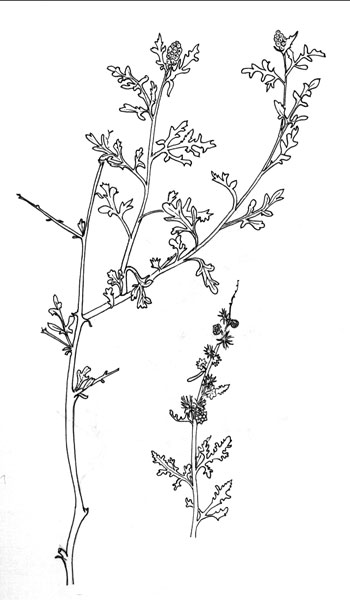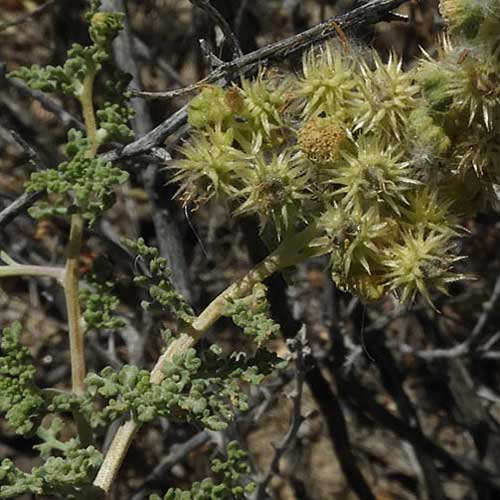White Bursage
Ambrosia dumosa
(Franseria dumosa)

Illustrated from live specimen found at KOFA Mountains, Yuma Co., Arizona. 14 March 1993.
LEAVES: Leaves are pinnately divided into almost linear segments and are
whitish. Foliage releases pungent sage-tarragon aroma on being crushed.
FLOWERS: These are composite flowers with male and female flowers in
separate heads on the same plant. The terminal spikes have several heads of
only female flowers below and a larger number of exclusively male-flowered
heads above. The petals are vestigial yet the male flowers appear yellow
because of the copious pollen. Anemophilous
pollination means that during the spring blooming period allergy
patients will suffer and most everyone else will at least notice the abundant
grit in the eyes.
ACHENE: The one or two achenes
of the female flower heads are enclosed in spine-hooked bracts. These mature
into burrs that affect dispersal.
SHRUB: A small- to medium-sized shrub normally less than ½ m tall.
RANGE: Common on the flats at lowerer elevations (usu. less than
350 m) in the Sonoran Desert than Triangle-leaf Bursage, Ambrosia deltoidea.
UNARMED.
PAPPUS: Absent.

Foothills of the Harquahala Mountains, western Maricopa Co., Arizona. May 2020.